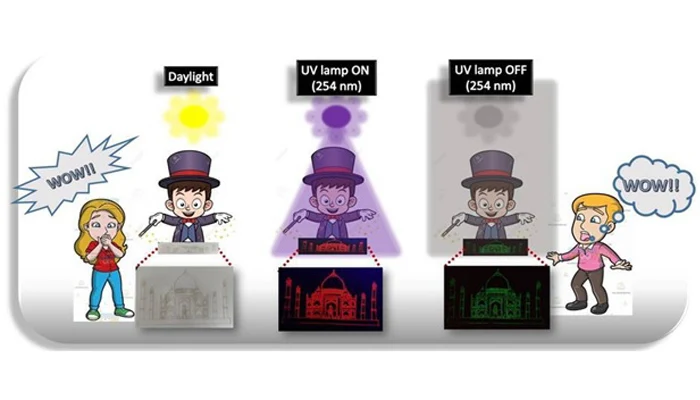CSIR Develops Advanced Dual-Emissive Security Ink for Combating Counterfeiting

Abstract
Counterfeiting is a major global threat, affecting economies through the duplication of currency notes, passports, and more. To combat this, scientists at the CSIR-National Physical Laboratory (CSIR-NPL) in New Delhi have developed an advanced security ink. This ink emits dual colors under ultraviolet (UV) light, enhancing its anti-counterfeiting capabilities. This article discusses the ink's technological innovations, synthesis process, and applications in safeguarding valuable items.
Introduction
Counterfeiting poses a severe challenge to global security and economies, leading to significant financial losses and undermining public trust. Traditional security inks used in currency and passports are no longer foolproof, as counterfeiters have found ways to replicate them. In response, CSIR-NPL scientists have developed a novel security ink with dual-emission capabilities under UV light, offering enhanced protection against counterfeiting.
Advanced Security Ink Technology
The newly developed ink by CSIR-NPL is based on the combination of fluorescence and phosphorescence phenomena. This dual-color emission under UV light sets it apart from traditional security inks. Under UV exposure, the ink emits red fluorescence at 611 nm and green phosphorescence at 532 nm when the UV light is turned off. The innovative design ensures no interference between the red and green emissions, making replication extremely difficult for counterfeiters.
Synthesis and Commercial Viability
The ink is synthesized by doping sodium yttrium fluoride with europium to create the red pigment, while the green pigment is formed by doping europium and dysprosium in aluminum strontium oxide. The pigments are mixed via the hydrothermal method, followed by annealing at 400°C. The ink's commercial viability has been confirmed through environmental testing, ensuring its durability in real-world applications.
Advantages and Applications
This dual-emissive security ink offers significant advantages, including enhanced anti-counterfeiting features, cost-effective production, and eco-friendliness. It is suitable for use in printing currency, passports, and pharmaceuticals. The ink's robustness under various environmental conditions makes it ideal for long-term applications.

Conclusion
The development of this dual-emissive security ink by CSIR-NPL represents a major advancement in the fight against counterfeiting. Its innovative properties and commercial viability make it a promising solution for protecting valuable items from duplication. As counterfeiters continue to evolve their methods, such advanced security measures are essential to maintaining the integrity of financial and identification documents.



